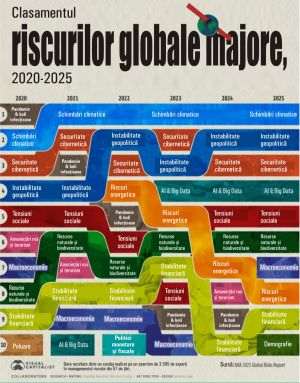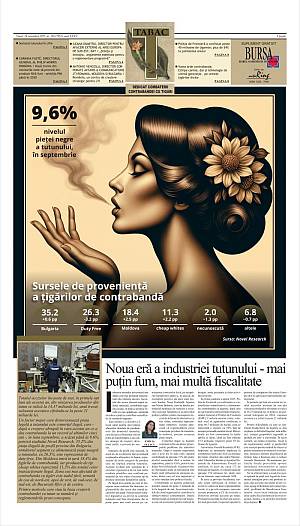Defense spending should be seen not only as a strategic necessity, but as an economic decision that directly influences financial stability and long-term growth, said Atsi Sheth, CCO (Chief Credit Officer) and Head of Credit Strategy & Standards at Moody's rating agency, according to an interview with Euractiv.
In a context marked by geopolitical tensions and increasing budgetary pressures, the message sent by the Moody's representative to the member states of the European Union is clear: it does not matter whether you invest in tanks or tractors, as long as this spending generates sustainable economic growth.
Moody's, one of the most influential financial rating agencies in the world, evaluates not only a state's ability to pay its debts, but also how its budgetary policies contribute to economic development. Thus, defense investments are judged not only in terms of national security, but also in terms of their potential to create jobs, boost productivity, and boost related industries. Atsi Sheth emphasized that a responsible government is one that transforms defense spending into an engine of growth, capable of triggering a virtuous economic cycle, not just deepening public debt.
Currently, the European Commission encourages member states to contract new loans to finance the increase in defense budgets. However, this strategy raises questions about financial sustainability. The lower a country's rating, the higher the cost of borrowing and the greater the burden on the budget.
Moody's therefore plays a decisive role in establishing the balance between defense and economic development. Estimates show that if all NATO countries were to meet their commitment to allocate 3.5% of GDP to defense, approximately 500 billion euros in new debt would be generated, 80% of which would come from loans. However, Atsi Sheth points out that debt is not necessarily a problem if the funds are used efficiently, generating positive economic effects. A state that uses the military budget to stimulate research, technology or industry can turn a seemingly rigid expenditure into a strategic investment.
Moody's carefully analyzes these factors - if a debt produces growth, employment and additional tax revenues, the country's rating has nothing to suffer. The problem arises when money is spent without a clear economic vision, and military purchases do not have multiplier effects on the real economy.
Historically, defense spending has been perceived as low-yield investments: weapons do not produce profit, and their demand disappears in peacetime. However, the Moody's representative argues that this way of thinking must be overcome. The "guns versus butter” debate - that is, the dilemma between funding the army or social programs - is much more complex today. It is not about choosing between security and well-being, but about understanding how every euro invested, whether in tanks or agriculture, can generate real economic value.
"You can choose to spend everything on butter and nothing on weapons, but if that spending does not produce sustainable growth, you are just wasting money,” said Atsi Sheth.
According to Euractiv, the example of Romania confirms this approach: Defense Minister Ionuţ Moşteanu recently stressed that military investments must create jobs and social benefits to justify their cost. France, for its part, has transformed the defense industry into an economic pillar over the decades, generating technological innovation and significant exports.
In a Europe increasingly under pressure to strengthen its security, Moody's message is a lesson in financial pragmatism: defense can be a burden or an opportunity, depending on how it is managed. European leaders must understand that economic power and military power are not adversaries, but facets of the same coin - stability. And stability, in the eyes of financial markets, remains the most valuable asset of any state.




















































Reader's Opinion